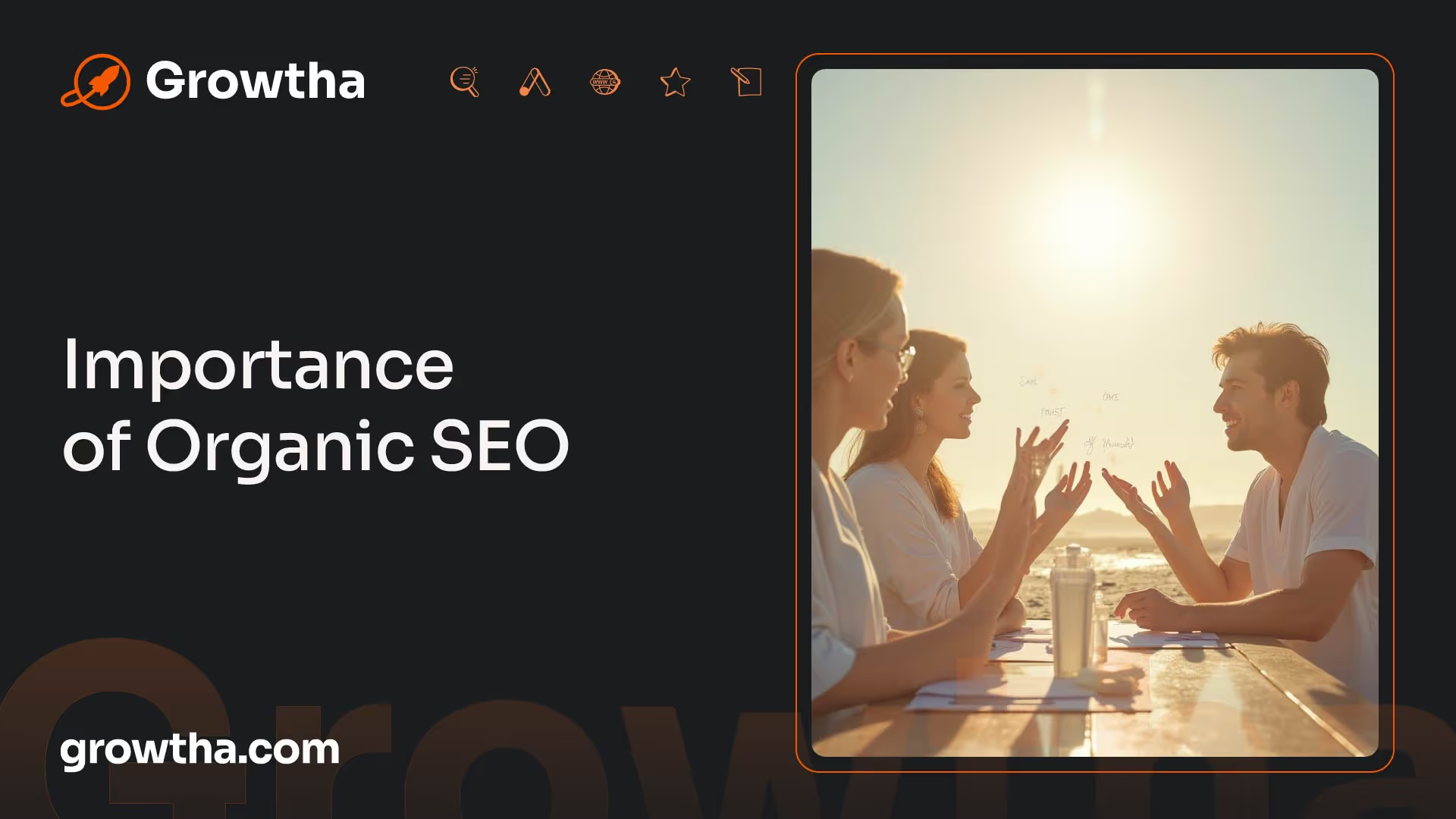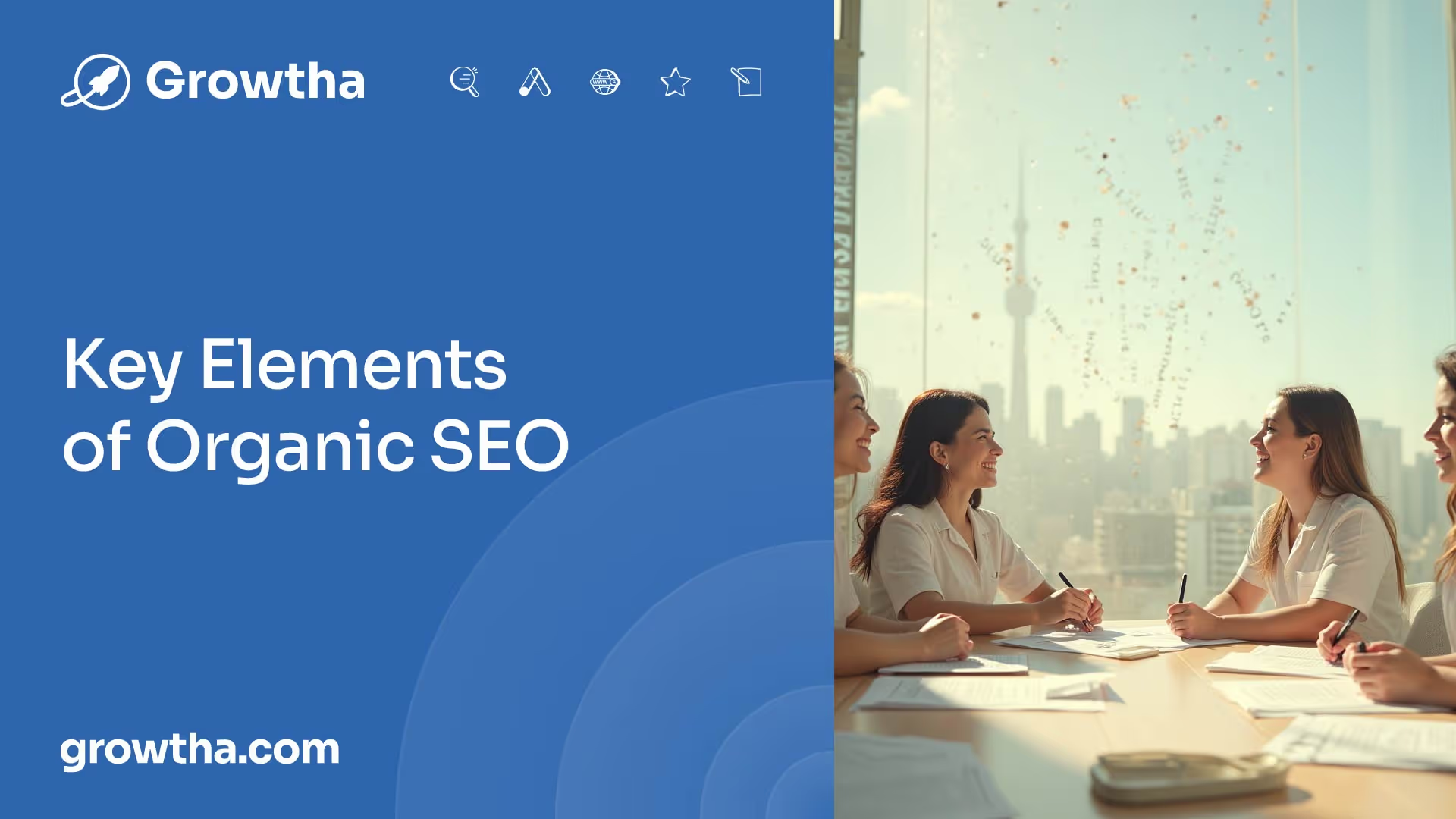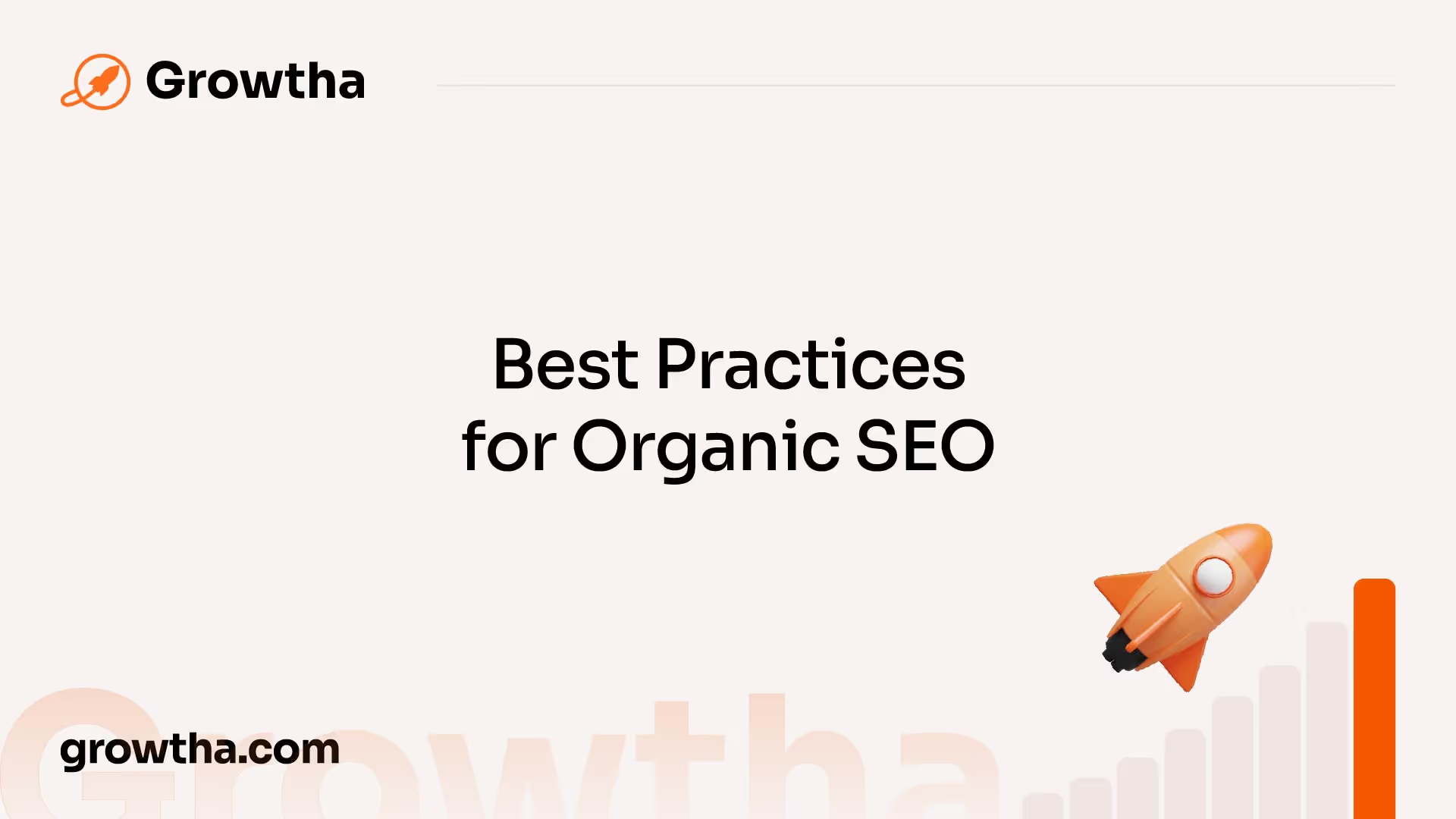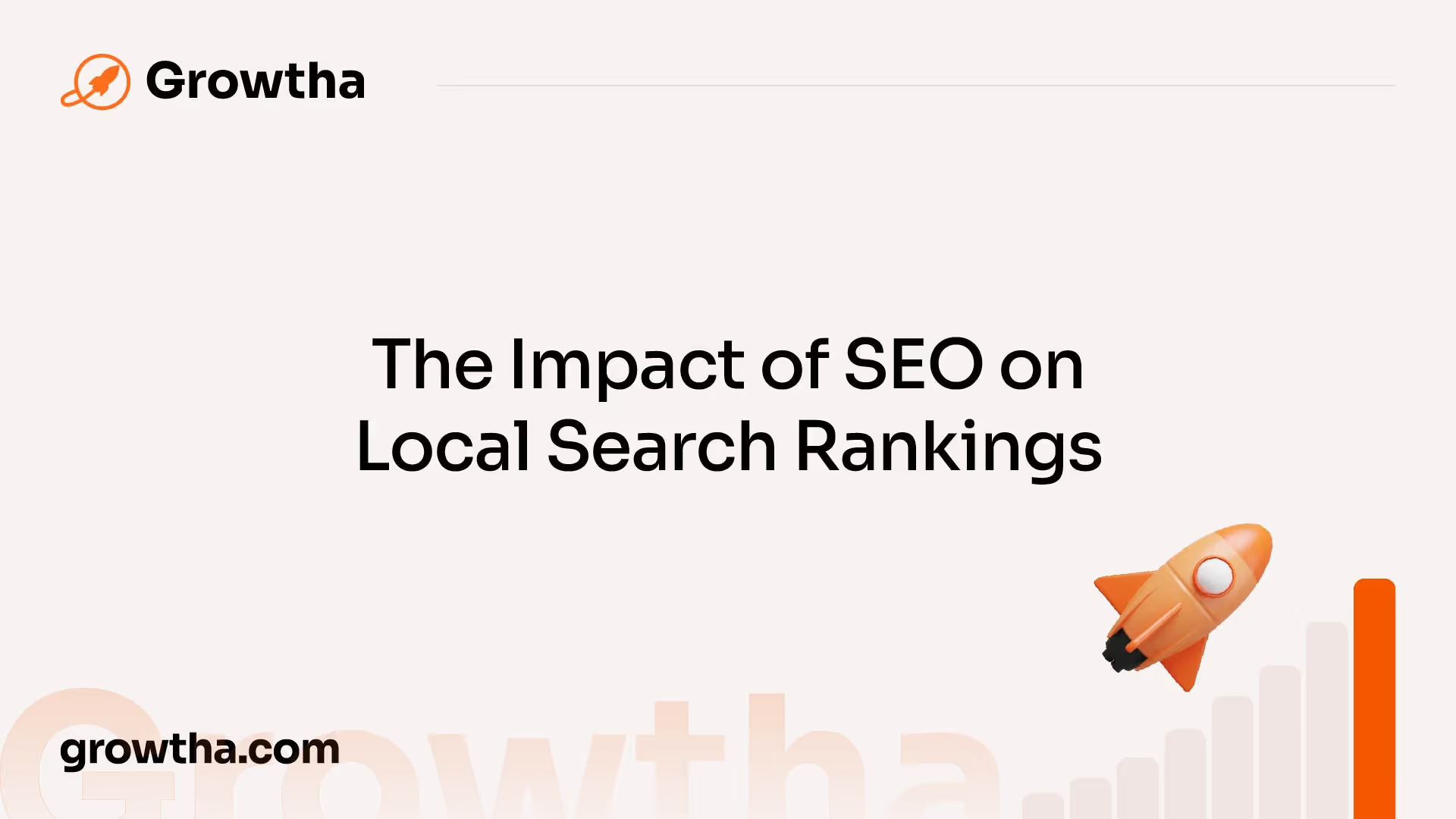The Magic of Organic SEO
Organic SEO, also known as natural or non-paid SEO, refers to the practice of optimizing a website to improve its visibility and rankings on search engine results pages (SERPs).


The Magic of Organic SEO
Understanding Organic SEO
To grasp the importance of organic SEO, it's crucial to have a clear understanding of what it entails and why it matters in the digital landscape.
What is Organic SEO?
Organic SEO, also known as natural or non-paid SEO, refers to the practice of optimizing a website to improve its visibility and rankings on search engine results pages (SERPs) through unpaid efforts. It involves various techniques and strategies aimed at enhancing a website's relevance, authority, and user experience to attract organic traffic from search engines such as Google, Bing, and Yahoo.
By optimizing a website for organic SEO, businesses strive to secure top positions in search results for relevant keywords, ultimately driving targeted traffic that can lead to increased conversions and business growth. Unlike paid search advertising, organic SEO focuses on earning visibility through content optimization, technical enhancements, and establishing credibility.
Importance of Organic SEO

Organic SEO plays a vital role in the success of any website or online business. Here are a few reasons why it holds such significance:
- Driving Organic Traffic: A recent study by Brightedge found that organic search drives 53% of all website traffic. By optimizing a website for organic SEO, businesses can tap into this substantial source of potential visitors, increasing their chances of reaching their target audience.
- Building Credibility and Trust: A strong organic search presence helps establish trust and credibility with users. When a website ranks high in organic search results, it is perceived as more authoritative, reliable, and trustworthy by users. This can positively impact user perception and increase the likelihood of engagement and conversions.
- Long-Term Results: While paid advertising can provide immediate visibility, organic SEO efforts yield long-term results. Once a website gains organic visibility and rankings, it can continue to attract traffic and generate leads without ongoing ad spend. This makes organic SEO a cost-effective strategy for businesses looking for sustainable growth.
- Enhancing User Experience: Google and other search engines prioritize high-quality content that provides users with the information they are seeking [3]. By focusing on organic SEO, businesses are encouraged to create valuable and relevant content that aligns with user intent. This leads to an improved user experience and increased engagement on the website.
Understanding the essence of organic SEO sets the stage for implementing effective strategies to improve a website's visibility, attract organic traffic, and achieve online success. By diving deeper into the key elements and best practices of organic SEO, businesses can unlock the full potential of their digital presence.
Key Elements of Organic SEO

To achieve success in organic SEO, there are several key elements that should be considered. These elements play a crucial role in improving search engine rankings and driving organic traffic to your website. The key elements of organic SEO include thorough keyword research, avoiding keyword cannibalization, on-page optimization techniques, and regular review and refinement.
Thorough Keyword Research
Thorough keyword research is a fundamental aspect of organic SEO. It involves identifying the search terms and phrases that your target audience is using to find information related to your business or industry. By understanding user intent through keyword research, you can create content that aligns with those search terms and provides valuable information.
Keyword research helps you uncover the most relevant and high-performing keywords to target in your content. By incorporating these keywords strategically, you increase the likelihood of ranking higher in search engine results pages (SERPs) and attracting organic traffic to your website.
Avoiding Keyword Cannibalization
Keyword cannibalization occurs when multiple pages on your website target the same keyword or similar variations. This can confuse search engines and dilute the ranking potential of your content. It's essential to identify instances of keyword cannibalization and take steps to fix them to maintain a strong SEO strategy.
To avoid keyword cannibalization, conduct a thorough audit of your website's content and identify pages that are targeting the same keyword. Consolidate or reoptimize these pages to ensure each page has a unique focus keyword. This way, you can maximize the visibility and ranking potential of each page.
On-Page Optimization Techniques
On-page optimization techniques involve optimizing various elements of your website to improve its visibility in search engine results. This includes optimizing title tags, meta descriptions, headings, URL structures, and content itself. On-page optimization techniques aim to enhance both the relevance and readability of your content, making it more appealing to both users and search engines.
When optimizing title tags and meta descriptions, it's recommended to front-load the main keyword and create unique, compelling descriptions that entice users to click on your website in the search results [4].
Additionally, prioritizing readability through short paragraphs, bullet points, and headings can improve user experience and encourage visitors to spend more time on your website. Well-structured and engaging content has a higher chance of being shared and linked to, further boosting your organic SEO efforts [2].
Regular Review and Refinement
Organic SEO is an ongoing process that requires regular review and refinement of your strategies. By monitoring the performance of your content, analyzing user behavior, and tracking search engine rankings, you can identify areas for improvement and adjust your approach accordingly.
Regularly reviewing content performance allows you to identify which keywords are driving the most traffic and conversions. With this insight, you can optimize existing content or create new content that targets high-performing keywords. This iterative process ensures that your website remains relevant, competitive, and aligned with evolving search engine algorithms [2].
By continuously refining your SEO strategies and adapting to changing trends, you can improve your website's visibility, attract more organic traffic, and ultimately achieve your business goals.
Incorporating these key elements into your organic SEO strategy sets the foundation for a strong online presence and positions your website for long-term success. Through thorough keyword research, avoiding keyword cannibalization, implementing on-page optimization techniques, and regularly reviewing and refining your strategies, you can drive organic traffic and increase your visibility in search engine results.
Best Practices for Organic SEO

Implementing best practices for organic SEO is essential to improve search engine rankings, attract more organic traffic, and enhance the overall visibility of a website. Here are some key practices to consider:
On-Site Optimization
On-site optimization techniques play a crucial role in boosting search engine rankings and improving user experience on a website. This includes prioritizing readability by using short paragraphs, bullet points, and headings to enhance content presentation. Additionally, optimizing page load speed, ensuring mobile responsiveness, and using descriptive URLs are important factors to consider.
Optimizing Title Tags and Meta Descriptions
Title tags and meta descriptions are vital elements for optimizing website content. The title tag should accurately reflect the content on the page, incorporating relevant keywords to improve search engine visibility. Meta descriptions provide a brief summary of the page's content and should be enticing to encourage users to click through from search engine results pages. Including relevant keywords in meta descriptions can also enhance SEO performance.
Backlink Building
Backlinks are crucial off-page SEO elements that contribute to a website's authority and visibility. Backlinks are defined as links from other sites to yours. Google evaluates both the quantity and quality of backlinks, with an emphasis on obtaining links from high-authority sites [3]. Building a strong backlink profile involves strategies such as guest blogging, influencer outreach, and creating valuable content that naturally attracts links.
Social Signals and SEO
Social signals, such as social media shares and engagements, indirectly contribute to boosting SEO performance. Encouraging content sharing on social media platforms can lead to increased visibility, potential backlinks, and higher traffic to a website [3]. It is important to incorporate social sharing buttons on your website and create engaging, shareable content that resonates with your target audience.
By implementing these best practices for organic SEO, you can optimize your website's visibility, improve search engine rankings, and attract more organic traffic. Remember, organic SEO is an ongoing process that requires regular review and refinement to stay ahead of the competition and adapt to changing search engine algorithms.
The Impact of SEO on Local Search Rankings

When it comes to local search rankings, implementing effective organic SEO strategies can have a significant impact on a business's visibility and success. Several key practices can help improve local search rankings and increase the chances of attracting nearby customers. Let's explore some of these practices in more detail.
Utilizing Google Business Profile
One essential aspect of local SEO is utilizing the Google Business Profile. This platform allows businesses to claim and update their information, ensuring that accurate and up-to-date details are displayed in local search results. By optimizing your Google Business Profile, you increase the likelihood of appearing in relevant local searches. It's important to note that information from sources like Wikipedia, third-party websites, and customer reviews also influence local search results [5].
Organic SEO Practices for Local SEO
Implementing organic SEO practices can indirectly benefit local SEO efforts. By optimizing website speed, ensuring mobile responsiveness, and improving site navigation, you enhance the overall user experience. This, in turn, increases the likelihood of local conversions and strengthens local rankings. By focusing on organic SEO best practices, you create a solid foundation for successful local SEO.
Establishing Trust and Credibility
An effective organic SEO strategy focuses on creating high-quality, informative content that resonates with the target audience. By consistently providing valuable information, businesses can establish themselves as authoritative sources in their industry. This enhances their online reputation and credibility at the local level, attracting nearby customers who perceive the brand as trustworthy. Building trust and credibility is crucial for improving local search rankings and driving local customer engagement [5].
Optimizing Local Citations
Local citations play a vital role in local SEO. Consistent and accurate business information, such as the business name, address, and phone number (NAP), across various online platforms is crucial for strengthening local online presence. By ensuring that your business information is consistent and up-to-date, you increase the likelihood of appearing in local search results. Optimizing local citations boosts credibility and helps potential customers find your business more easily.
Taking a holistic approach to digital marketing is key to supporting both organic and local SEO efforts. This includes building backlinks, cultivating a strong social media presence, and earning online reviews. By nurturing a comprehensive online presence across all brand locations, businesses can create a sustainable digital marketing strategy that supports both organic and local search rankings.
By implementing these practices and considering the specific needs of local search rankings, businesses can leverage the power of organic SEO to enhance visibility, attract local customers, and achieve success in their target market.
Successful SEO Campaign Examples

To truly understand the power of organic SEO, let's take a look at some successful campaign examples. These real-life cases demonstrate how various strategies and techniques can lead to significant improvements in website traffic, rankings, and overall online presence.
Website Revamping for Increased Traffic
The American Egg Board (AEB) implemented a website revamp as part of their SEO campaign, resulting in an impressive increase of 22% in website traffic and 87% in mobile traffic [6]. By optimizing their website structure, improving user experience, and implementing technical SEO best practices, AEB was able to attract more visitors to their site and enhance their online visibility.
Improved Blogging Strategy and CTAs
A well-executed blogging strategy can have a significant impact on SEO. Kids Klub Dentistry saw their rankings soar by over 84 positions by implementing a better blogging strategy and strategically placing call-to-action (CTA) elements throughout their content. By consistently producing high-quality and relevant blog posts, they were able to attract more organic traffic and engage their audience, ultimately boosting their search engine rankings.
Enhancing Website Structure
The structure of a website plays a crucial role in its performance and visibility. Belden Brick Company experienced a remarkable increase of over 85% in converted visitors by improving their website structure [6]. Through proper organization, intuitive navigation, and optimized internal linking, Belden Brick Company enhanced the user experience and made it easier for search engines to crawl and index their content, resulting in improved conversions.
Content Optimization and Keyword Research
Maldive Traveller focused on content optimization and extensive keyword research as part of their SEO campaign. This approach led to an impressive increase of over 40% in website visits per day. By creating high-quality, keyword-rich content that matched user search intent, Maldive Traveller was able to attract targeted organic traffic and improve their overall visibility in search engine results.
Building an Online Presence
Complete Plumbing Source (CPS) recognized the importance of building a strong online presence to drive their business growth. By implementing various SEO strategies, CPS achieved a remarkable increase of over 40% in total sales [6]. Through effective link building, content marketing, and social media engagement, CPS established their brand as an authority in their industry, attracting more customers and increasing their revenue.
These successful SEO campaign examples highlight the power of organic SEO in driving website traffic, improving search engine rankings, and boosting online visibility. By implementing various techniques such as website revamping, improved blogging strategies, enhanced website structure, content optimization, and building an online presence, businesses can leverage the magic of organic SEO to achieve significant results.
The Role of Content in Organic SEO
Content plays a crucial role in the success of organic SEO strategies. Search engines like Google prioritize high-quality content that provides relevant and useful information to users. The goal is to rank this content at the top of search engine results pages, enhancing the overall user experience.
High-Quality Content for SEO Success
Creating high-quality content is a fundamental aspect of organic SEO. Websites should aim to have a minimum of 300 words per page, with an average of around 500 words. While longer content is generally preferred, it is essential to maintain its relevance, interest, and avoid repetitiveness to maximize SEO impact [7].
When developing content, it's crucial to understand the target audience's needs and deliver valuable and informative material. By doing so, search engines are more likely to recognize the content as valuable and rank it higher in search results.
Utilizing Relevant Keywords
Integrating relevant keywords into web page titles and content is essential for organic SEO. These keywords should be naturally incorporated into the text, ideally at the beginning, to avoid penalties from search engine algorithms. Conducting thorough keyword research and understanding the search intent behind each keyword can help optimize content for better rankings.
Understanding Search Intent
Search intent refers to the goal or purpose behind a user's search query. Understanding the search intent for each targeted keyword is vital in SEO strategy. By analyzing the search results for a particular keyword, you can identify the intents that need to be fulfilled by your content. This allows you to create content that aligns with the user's search intent, increasing its relevance and potential for higher rankings [3].
Backlinks and Social Signals
Backlinks are crucial off-page SEO elements. They are links from other websites that point to your site. The quantity and quality of backlinks play a significant role in search engine rankings. It is essential to obtain backlinks from high-authority sites to enhance your website's credibility and visibility.
Social signals, such as social media shares, also indirectly contribute to SEO success. Encouraging content sharing on social media platforms can lead to increased backlinks and drive traffic to your website. This, in turn, can improve your website's overall SEO performance [3].
By focusing on creating high-quality content, utilizing relevant keywords, understanding search intent, and building a strong backlink profile, you can harness the power of content to enhance your organic SEO efforts. Remember to continuously monitor and refine your content strategy to stay ahead in the ever-evolving world of search engine optimization.
Paid Search vs. Organic Search
When it comes to online marketing strategies, businesses often face the decision between paid search and organic search. Each approach has its own unique characteristics and benefits. In this section, we will explore the differences and advantages of paid search and organic search, as well as considerations for choosing the right approach for your business.
Differences and Benefits
Paid search involves running online advertisements through platforms like Google Ads, where businesses bid on keywords to have their ads displayed at the top of search engine results. These ads are labeled as "sponsored" and appear above the organic search results. Paid search offers immediate visibility and precise targeting, making it an excellent option for businesses with time-sensitive promotions and a larger budget.
On the other hand, organic search, also known as search engine optimization (SEO), focuses on optimizing a website and its content to rank high in search engine results for relevant keywords. Organic search traffic is free and can provide long-term benefits with proper optimization. Users tend to perceive organic search results as more trustworthy than paid results, resulting in higher click-through rates. Organic search delivers long-term benefits and is cost-effective, making it an excellent option for businesses looking to increase their visibility over the long term.
Cost-Effectiveness of Organic Search
One of the key advantages of organic search is its cost-effectiveness. Unlike paid search, organic search traffic is generated without direct monetary investment. While SEO efforts require time and resources to optimize a website and improve its rankings, the long-term benefits outweigh the initial investment. With proper optimization, organic search can drive consistent traffic to a website without incurring ongoing costs for clicks or impressions.
Choosing the Right Approach
The choice between paid search and organic search depends on a business's goals and budget. If immediate results and precise targeting are essential, paid search may be the preferred option. However, if long-term visibility and cost-effectiveness are the primary considerations, organic search is the way to go. Many businesses find that a combination of both paid and organic search strategies yields the best results. By leveraging the benefits of each approach, businesses can create successful campaigns that reach their target audience effectively and provide a higher return on investment.
When making this decision, it's crucial to assess your business's goals, budget, and timeline. Consider factors such as the competitiveness of your industry, the urgency of your marketing objectives, and the resources available for implementation. By carefully evaluating these factors, you can determine the most suitable approach for your business's unique needs.
In conclusion, both paid search and organic search have their advantages and play important roles in an optimal digital marketing strategy. While paid search offers immediate results and precise targeting, organic search provides long-term visibility and cost-effectiveness. By considering your business goals and budget, you can choose the approach that aligns best with your marketing objectives and maximize your online presence.
The Role of Content in Organic SEO
In the realm of organic search engine optimization (SEO), content plays a vital role in driving traffic and improving search rankings. By creating high-quality, informative, and engaging content, websites can enhance their visibility and attract a larger audience. Let's explore the key aspects of content in organic SEO.
High-Quality Content for SEO Success
To achieve SEO success, it is crucial to develop high-quality content that provides valuable information to users. This includes creating well-researched articles, blog posts, videos, and other forms of content that are relevant to the target audience. By delivering valuable content, websites can establish themselves as authoritative sources within their respective industries.
Utilizing Relevant Keywords
Keywords are an essential component of organic SEO. By conducting thorough keyword research and incorporating relevant keywords into the content, websites can signal to search engines what their content is about. It is important to use keywords naturally and avoid keyword stuffing, as search engines prioritize content that reads well and provides value to users.
Understanding Search Intent
Another aspect of content in organic SEO is understanding search intent. Search engines aim to provide the most relevant results to users based on their search queries. By aligning content with the intent behind specific search queries, websites can attract more targeted traffic. This involves analyzing the types of queries users are making and tailoring content to address their needs and queries effectively.
Backlinks and Social Signals
In the world of organic SEO, backlinks and social signals also play a significant role in boosting a website's visibility. Backlinks are links from other websites that point to your content, indicating to search engines that your content is valuable and trustworthy. Social signals, such as shares, likes, and comments on social media platforms, can also indicate the credibility and popularity of your content.
By producing high-quality content and promoting it effectively, websites can attract more backlinks and social signals, which can positively impact their organic search rankings.
Organic SEO provides long-term benefits, as the content you create continues to work for you over time, attracting traffic and establishing your website's authority. It requires an investment in producing and optimizing content, but it can yield dividends for years to come.
It's important to note that organic SEO is a long-term strategy that takes time to produce results. Unlike paid search ads that appear at the top of search results, organic search results may appear lower on the page. However, organic search tends to receive the majority of clicks, while paid ads may generate higher conversion rates.
In conclusion, content is a fundamental component of organic SEO. By creating high-quality, relevant, and valuable content that aligns with search intent and attracts backlinks and social signals, websites can improve their organic search rankings and drive targeted traffic to their pages.
References
[2]: https://www.analyticodigital.com/blog/best-practices-techniques-for-seo-content-optimization
[3]: https://www.webfx.com/blog/seo/seo-elements/
[4]: https://backlinko.com/hub/seo/best-practices
[5]: https://www.rioseo.com/blog/how-to-support-your-local-search-rankings-with-organic-seo/
[6]: https://www.linkedin.com/pulse/10-best-seo-campaign-examples-oladapo-hapostle/
[7]: https://blog.epages.com/en/the-6-key-elements-of-a-good-seo-strategy/







